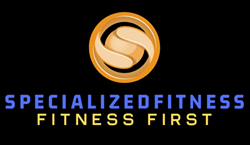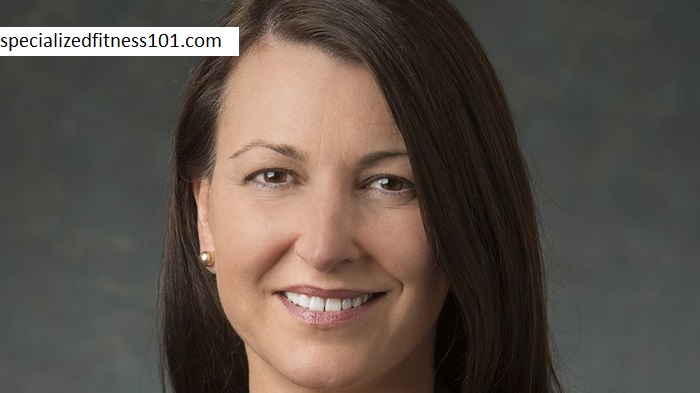Understanding UMB Health Savings Accounts (HSAs): A Comprehensive Guide:
Health Savings Accounts (HSAs) have become an increasingly popular way for individuals to manage healthcare expenses, particularly as healthcare costs continue to rise. UMB Health Savings Accounts, specifically, offer individuals a tax-advantaged way to save for current and future medical expenses. As a leader in financial services, UMB Bank provides a variety of HSA options that cater to different needs, enabling account holders to take control of their healthcare savings.
In this article, we’ll explore the essentials of UMB Health Savings Accounts, the benefits they provide, eligibility criteria, contribution limits, and how they can serve as an important financial tool for managing healthcare costs now and in retirement.

1. What Is a Health Savings Account (HSA)?
An HSA is a tax-advantaged savings account that allows one to pay for qualifying medical expenses. The greatest appeal of an HSA is the triple tax benefit it provides:
Tax-Deductible Contributions:
Contributions made to an HSA are tax-deductible. This reduces the taxable income of the year for which they were made.
Tax-Free Growth: Funds in an HSA grow tax-free and can be invested in ways that increase the balance over time.
Tax-free withdrawals:
When the money is used to pay for qualified medical expenses, they are withdrawn tax-free.
HSAs are often combined with HDHPs since these plans have lower premiums. This makes it easier to afford the higher deductibles that come with the plans.
For those who are eligible, an HSA can be a powerful financial tool that can help you pay for everything from doctor visits and prescription medications to dental work and vision care.
2. What Are UMB Health Savings Accounts?
UMB Health Savings Accounts are provided by the trusty financial house UMB Bank, which has long been providing banking solutions for people. By using UMB’s HSAs, individuals and families get opportunities to manage their healthcare costs in a smart, tax-advantaged way. Moreover, UMB comes up with a wide variety of features for HSA holders, thus making it an attractive choice for those interested in controlling their health and wellness expenses.
The competitive interest rates, flexible contribution options, and various investment options for long-term growth that UMB’s HSA offers are ideal for a person who seeks easy access to funds in case of an immediate medical expense and also a chance for growth over time.
3. Eligibility Criteria for UMB Health Savings Accounts:
To open and contribute to an HSA, individuals must meet certain eligibility requirements. These criteria are regulated by the IRS, and the rules are generally consistent across HSA providers, including UMB.
Basic Eligibility Requirements:
Enrolling in a High-Deductible Health Plan (HDHP): You need to be enrolled in an HDHP to qualify for an HSA. According to the IRS, an HDHP is defined as a health plan with a higher deductible and lower premiums than traditional health plans. The HDHP has certain criteria in terms of annual deductibles and out-of-pocket maximums.
No Other Health Coverage:
You should not be covered by another health plan besides a high deductible health plan. For example, if you are covered under a spouse’s non-HDHP, then you would not qualify to make contributions to an HSA.
Not Enrolled in Medicare:
After you are enrolled in Medicare, you can’t contribute to an HSA anymore. However, you can still use the funds available in your current HSA for eligible medical expenses.
Not Claimed as a Dependent:
You are not allowed to open or contribute to an HSA if you are claimed as a dependent on someone else’s tax return.

4. Contributions to a UMB Health Savings Account:
One of the most appealing attributes of an HSA is the contribution flexibility. It allows you to contribute up to an annual limit adjusted for inflation annually. Contributions to a UMB HSA are tax deductible, thereby lowering your taxable income in the year that contributions are made.
2025 Contribution Limits:
Individual Coverage: The annual limitation on contributions to a health savings account for a calendar year under a high-deductible health plan with self-only coverage is $4,850.
Family Coverage: In the case of family coverage under an HDHP, the contribution limit is $9,850.
Catch-Up Contributions: People 55 or older can contribute another $1,000 as a “catch-up” contribution.
Contributions to the account can be done at any time in a year and can be done either by the account owner or by another person (who might be the employer or family member). Contribution to a UMB HSA can be established through payroll deduction or directly to an account through online transfer if you have a UMB HSA.
5. Tax Benefits of UMB Health Savings Accounts:
The primary reason why individuals choose an HSA is the significant tax advantages. Let’s break down the specific tax benefits of UMB HSAs:
a. Tax Deduction on Contributions:
As noted above, HSA contributions are tax deductible. That is to say that any money contributed to your UMB HSA will reduce the income subject to tax in your personal tax year, and less will be charged as tax, reducing your present and future taxation liabilities. Tax savings are available now.
b. Tax-free Growth:
Once the money is in the HSA, it grows tax-free. UMB HSAs have multiple investment options that are available such as stocks, bonds, and mutual funds; hence, your contribution will be compounded over time. The feature of tax-free growth makes HSAs a very good tool for long-term savings.
c. Tax-Free Withdrawals for Medical Expenses:
Withdrawals from a UMB HSA are tax-free if the amount withdrawn is used for qualified medical expenses. For example, some of these qualified expenses include medical billing, prescription medicine, dental care, vision care, and even treatments like acupuncture. Being never taxed upon withdrawal, one can save even more efficiently because of this UMB HSA system.
6. Investing with Your UMB HSA:
One of the excellent benefits of having a UMB Health Savings Account is that it offers an opportunity to invest money saved in this type of account. After a balance is often set at $1,000-a certain amount you have saved will qualify you for investments, including but not limited to mutual funds and ETFs.
Investing your HSA balance can be a particularly attractive option if you are seeking to build wealth over time to pay for future medical expenses, especially in retirement. HSAs are often termed “the retirement account for healthcare” because of the long-term tax advantages.
7. How to Utilize Your UMB Health Savings Account:
Your UMB HSA is easy to use. To access the money for eligible medical expenses, you can:
Debit card: UMB offers an HSA debit card which you can utilize for direct pay for medical-related expenses from your HSA account. In that way, it is rather easy and timely to pay qualified expenses.
Checks: If there are those persons who prefer making checks, for paying medical professionals directly, there are HSA checks offered as well by the bank.
Reimbursement:
You can reimburse yourself through your HSA at any time if you pay for a medical expense out of pocket.
The funds in your UMB HSA roll over to the next year, so there is no “use it or lose it” provision as there can be in other health accounts. This also makes it simple to store a reserve for future expenditures.
8. Long-Term Benefits of UMB Health Savings Accounts:
UMB HSAs are not only for current medical expenses; they can be used as a very powerful retirement savings tool. HSA funds grow tax-free and can be used at any time for medical expenses, so they are all the more precious by retirement age. After you turn 65, you can use the funds tax-free for non-medical expenses, too, but withdrawals made after that will subject some or all of that money to income taxes.
In addition, many people are unaware that the HSA can operate much like a traditional retirement account with tax-deferred growth and withdrawals for healthcare expenses at any age. As a result, UMB HSAs are an important part of long-term financial planning, especially given the increasing costs of health care in retirement.
9. Summary:
UMB Health Savings Accounts offer exceptional opportunities for anyone to save towards their current or future healthcare needs in addition to enormous tax benefits. Whether you are concerned with paying immediately for medical services or are planning retirement healthcare costs, UMB has the HSA options to enable you to save toward your healthcare goals.

The potential to invest your HSA balance, the freedom in tax-free withdrawals for medical costs, and long-term growth make UMB Health Savings Accounts a great tool for efficiently managing health costs. Its user-friendly platform, tax benefits, and flexible features make UMB Health Savings Accounts an excellent option for those looking to gain better control over health-related expenses.:

